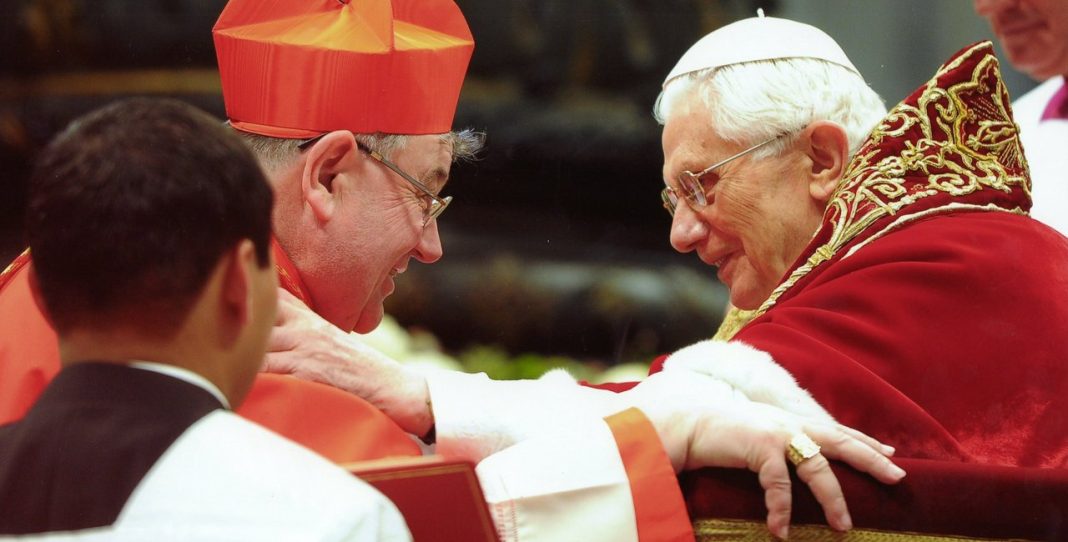Cardinal Dominik Duka, a significant figure in both the ecclesiastical and political history of the Czech Republic, has passed away at the age of 82. As a former Archbishop of Prague and an influential dissident, his legacy is deeply intertwined with the religious and social fabric of the nation.
Early Life and Spiritual Journey

Born on April 26, 1943, Dominik Duka began his journey toward priesthood amidst the politically turbulent environment of post-war Czechoslovakia. He entered the Dominican Order in 1965, at a time when religious practice was heavily restricted by the Communist regime. Despite these challenges, Duka remained steadfast in his spiritual mission, reflecting an unwavering dedication to his faith.
Ordained as a priest in 1970, Duka faced constant surveillance by the state. For years, he worked covertly, conducting secret masses and baptisms, showing immense courage in the face of potential persecution. His deeply-held convictions and resilience made him a beacon of hope for many during this time of oppression.
Dissidence and Imprisonment

Cardinal Duka’s dissident activities extended beyond spiritual leadership, as he became an active figure in the underground church movements. His involvement in these activities eventually led to his arrest in 1981, where he was imprisoned for 15 months. This period marked a significant turn in his life, solidifying his role as a champion of religious freedom and human rights.
While incarcerated, Duka continued to inspire those around him, offering spiritual guidance to fellow prisoners. His time in prison did not deter his faith or commitment to justice, instead fortifying his resolve to advocate for change and support clandestine religious activities upon his release.
Rise to Archbishop and Cardinal

Following the Velvet Revolution in 1989, which saw the fall of communism in Czechoslovakia, Dominik Duka’s ecclesiastical career flourished. He was appointed Bishop of Hradec Králové in 1998 and later ascended to become the Archbishop of Prague in 2010. His appointment as a Cardinal by Pope Benedict XVI in 2012 further cemented his influence within the Vatican and the broader Catholic community.
During his tenure as Archbishop, Cardinal Duka focused on reconciling the past with the present, working extensively on improving relations between the Church and state. His leadership was pivotal in managing the restoration and return of church properties confiscated during the communist era.
Legacy and Influence

Cardinal Duka’s contributions extended beyond the religious domain into social and political spheres. He was instrumental in engaging in dialogues on moral and ethical issues, frequently addressing topics such as family values, education, and human rights. His voice was a guiding force in matters concerning religious liberty and national identity.
Moreover, he emphasized the importance of cultural heritage and the role of faith in contemporary society, encouraging dialogue between various faith communities in the Czech Republic. His influence was both profound and enduring, leaving a mark on numerous spheres of life.
Reflections on His Impact

As the news of his passing reverberates, many are reflecting on Cardinal Duka’s immense impact on the church and the nation. Tributes are pouring in from various corners of the world, recognizing his tireless work and his indomitable spirit. His legacy continues to inspire those who strive for integrity, justice, and faith in challenging times.
Cardinal Dominik Duka’s life is a testament to the power of perseverance, conviction, and faith. His unwavering dedication to his beliefs and his efforts in promoting peace and unity will be remembered for generations to come.
In conclusion, Cardinal Duka’s passing marks the end of an era for the Czech Catholic Church, yet his legacy will undoubtedly influence future paths in both religious and secular realms. His contributions have left an indelible imprint on the history of the church and the nation.





